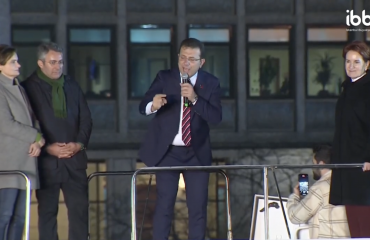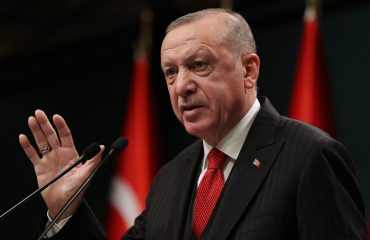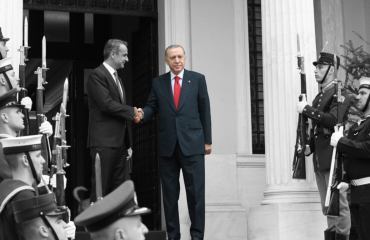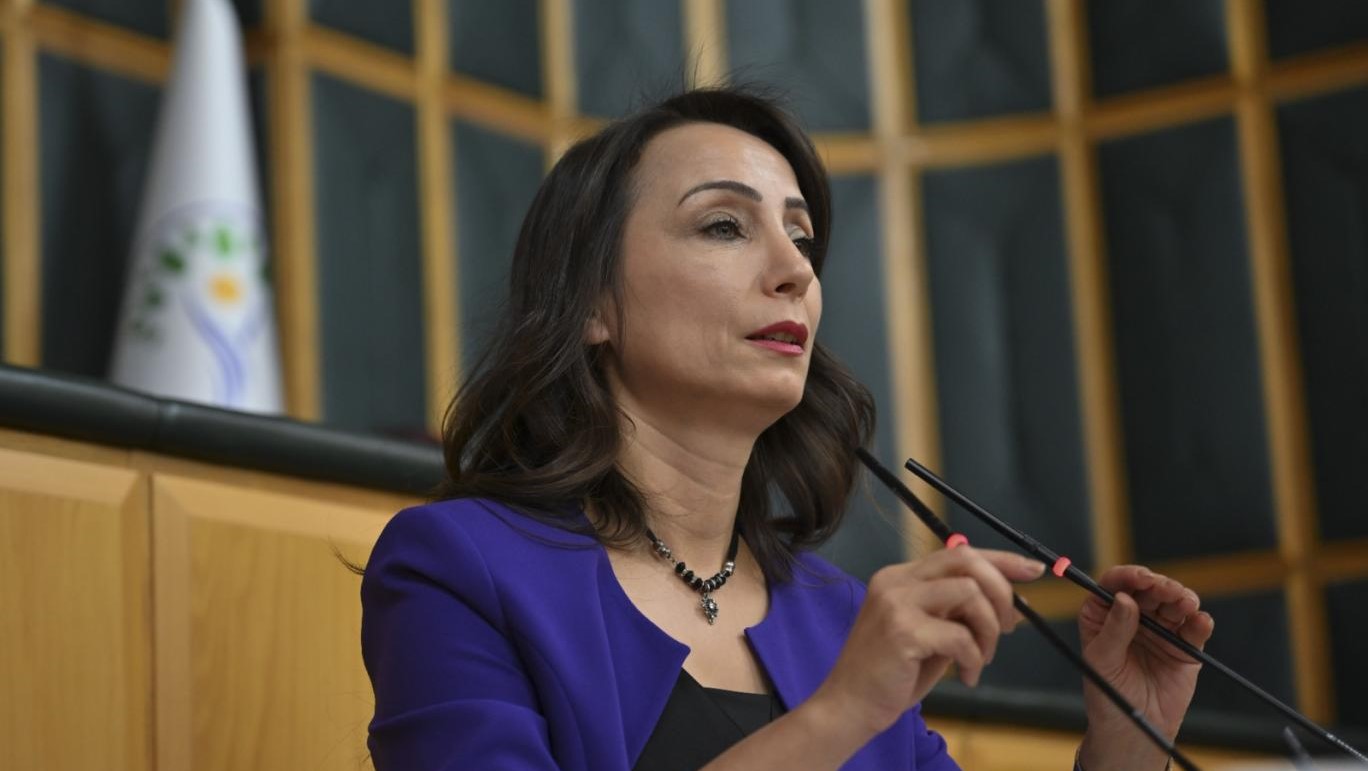
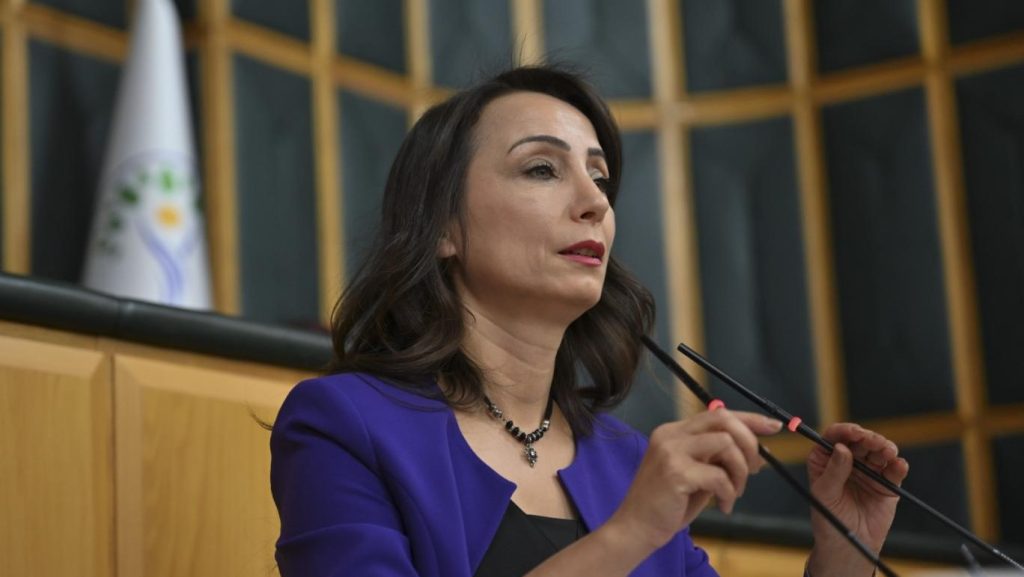
“Is it appropriate to discuss constitutional matters where the appointment of trustees are being debated?” DEM Party co-chair Tülay Hatimoğulları said during her speech in the parliament. She emphasized that her party’s positive stance towards the proposed constitutional reform was not unconditional. Saruhan Oluç also raised the issues of Kobani and the closure cases against HDP.
The Democratic Equality and Democracy Party (DEM Party) emerged as the opposition party providing the most explicit support for the ruling Justice and Development Party’s (AKP) new Constitutional initiative.
For instance, while the CHP leader Özgür Özel expressed a desire to see the proposal President and AKP leader Tayyip Erdoğan would bring forward, DEM Party Co-Chair Tülay Hatimoğulları emphasized that they had begun setting up their own commissions to work on a “Democratic Constitution” during her address to the DEM Group in the TBMM on May 7.
In essence, Hatimoğulları’s speech was generally less confrontational than other speeches within the DEM Group. It rather leaned towards the tone of a left-wing opposition party. She primarily focused on economic hardships, high living costs, income inequality, and the dire conditions of retirees, who fare worse than minimum wage earners.
While expressing their willingness to contribute to a new constitution, they also highlighted their cautious approach. Among their concerns was the question of whether the decisions on the Kobani Trial, which are anticipated to be announced on May 16, would indeed be revealed, along with the discussions arising from the appointments of trustees to municipalities, amid ongoing debates over the indebtedness of municipalities by trustees while the dust from the March 31 elections had yet to settle.
Indeed, Hatimoğlları interjected by questioning, “Is it appropriate to discuss constitutional matters where the appointment of trustees are being debated?”
Not only Kobani or trustees
Moreover, after the group meeting, DEM Party Antalya Deputy Saruhan Oluç added the closure case against HDP to the discussion.
Oluç indicated, “Yes to softening in politics, yes to normalization, but,” he said suggesting that if decisions such as heavy penalties from the Kobani trial or the commencement of trustee appointments were made alongside a decision to close the HDP, then normalization would only remain a notion. They are considering these aspects carefully.
Two of the three issues raised by Oluç are already interconnected; the indictment for the closure of the HDP already encompasses the Kobani events and the involvement of HDP executives during that period.
Are these conditions indicative of the “normalization” call made by the DEM Party following CHP leader Özel’s meeting with President Erdoğan on May 2?
Oluç responded, emphasizing that the Kobani Trial is based on a weak indictment and is a politically motivated trial aimed at purging the HDP by incarcerating prominent figures of the party and barring them from political participation. He said that the appointment of trustees serves a similar purpose by removing elected municipal officials. They emphasize the importance of adhering to legal regulations, particularly when advocating for a democratic constitution.
“Of course, when we say normalization, we also consider these measures. Therefore, while we say democratic Constitution, we especially emphasize legal regulations,” he said.
If normalization remains only a verbal pledge
Erdoğan’s discourse of “softening in politics,” or more commonly referred to as “normalization” within parliamentary circles, seems to have gained traction in the evolving political climate following the March 31 elections. Ostensibly, there is no opposition to normalization.
For example, after Özel’s meeting with MHP leader Devlet Bahçeli on May 7, those from the MHP who also wish to see the DEM Party closed after the HDP stated, “We also desire normalization,” albeit with certain reservations. There are elements in every faction seeking to undermine the dialogue environment.
In essence, it was Erdoğan who responded to Özel’s request for a meeting. This occasion also brought politically charged cases to the fore; the Gezi Trial concerning Osman Kavala and Can Atalay, the Kobani Trial concerning Selahattin Demirtaş, and the February 28 Trial concerning Çetin Doğan.
We observe that even the mention of Kavala’s name alone sparks debates not only between the government and the opposition but also within the AKP’s factions and the MHP, as well as between the two within the People’s Alliance.
Eyes on political trials
Indeed, in his speech on May 6 regarding “softening in politics,” Özel stated, “I desire softening the most.”
He argued that “if Taksim is prohibited despite the decision of the Constitutional Court, or if the ODTÜ Stadium is off-limits, then normalization is out of the question.” He pointed out that if their colleagues “are in prison due to the Gezi Trial, no one should speak about normalization.”
Namık Tan, CHP Istanbul Deputy, who accompanied Özel during his meeting with Erdoğan, provided further details:
“As the CHP, we will not yield to the pressures from the Gezi Trial, the Kobani Trial, the celebration of May 1 in Taksim, the empowerment of local governments, respect for the will of the voters, censorship, corruption, or attempts to deviate from reason, science, and secularism in education.”
Among the issues conveyed to Erdoğan by Özel verbally and in writing, we can say that there is also the question of the judiciary-politics relationship. The phrase “Respect for the existing Constitution first” also alludes to the ongoing political trials.
While the DEM Party’s measure of normalization may be more focused on party priorities than the CHP’s, they are also keenly observing potential political developments in ongoing trials.
This is how the view of “normalization” appears in the Parliament for now.
